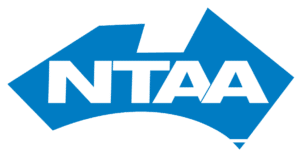Self Managed Super Fund (SMSF)
An SMSF, or Self-Managed Superannuation Fund, is a unique trust structure that empowers individuals to have direct control over the management and investment of their retirement savings, offering a high level of autonomy within established regulatory frameworks.

What is SMSF?

A Self-Managed Superannuation Fund (SMSF) is a specific type of retirement savings vehicle in Australia that gives individuals and small groups of members the ability to manage their own superannuation investments. Unlike traditional superannuation funds, where professional fund managers make investment decisions on behalf of members, an SMSF allows members to take on the role of trustees, giving them direct control over their fund’s investments and financial decisions.
SMSFs are governed by strict regulations set by the Australian Taxation Office (ATO) and the Australian Securities and Investments Commission (ASIC). These regulations are designed to ensure that SMSF trustees comply with their legal and financial responsibilities. SMSF trustees have the flexibility to invest in a wide range of assets, including shares, property, cash, and fixed income, providing them with greater control and potential for diversification. SMSFs are a popular choice for those who want more autonomy over their retirement savings and are willing to take on the associated responsibilities and compliance obligations.
Who is a SMSF suitable for?

A Self-Managed Superannuation Fund (SMSF) is suitable for individuals or small groups of members who meet specific criteria and have particular financial goals and preferences.
- Seek Greater Control: Want direct control over their retirement savings, including investment decisions and asset choices.
- Have Sufficient Funds: Typically, SMSFs are more cost-effective for those with substantial superannuation savings (usually over $200,000 to $500,000) due to the expenses involved in setting up and running the fund.
- Desire Diversification: Wish to diversify their investments across a wide range of asset classes, including property, shares, cash, and fixed income.
- Understand Responsibilities: Are willing to take on the administrative and compliance responsibilities associated with managing an SMSF, including record-keeping and adhering to regulatory guidelines.
- Have the Time and Expertise: Have the time, knowledge, and expertise to make informed investment decisions or are willing to seek professional advice.
- Want Estate Planning Control: Desire greater control over estate planning and passing on wealth to beneficiaries in a tax-efficient manner.
- Seek Specific Investments: Have specific investment strategies or assets they want to include in their superannuation portfolio that may not be available in traditional funds.
- Value Flexibility: Value the flexibility to tailor their superannuation strategy to their individual financial goals and circumstances.
Benefits and Advantages of SMSF

Self-Managed Superannuation Funds (SMSFs) offer several benefits and advantages for individuals or small groups of members who are seeking more control over their retirement savings and investment decisions. Some of the key benefits and advantages of SMSFs include:
- Greater Control: SMSF members act as trustees, giving them direct control over the fund’s investments, asset allocation, and financial decisions. This control allows for a tailored investment strategy that aligns with the members’ specific financial goals.
- Diversification: SMSFs can invest in a wide range of assets, including property, shares, cash, fixed income, and collectibles. This flexibility enables members to diversify their portfolio, reducing risk and potentially optimizing returns.
- Tax Efficiency: SMSFs benefit from concessional tax rates, especially for investments held for the long term. Capital gains derived from assets held for more than 12 months receive a 50% capital gains tax (CGT) discount, and income from assets in pension phase is generally tax-free.
- Estate Planning: SMSFs provide greater control over estate planning, allowing members to nominate beneficiaries and efficiently pass on wealth upon their passing. This can be particularly advantageous for legacy planning and intergenerational wealth transfer.
- Cost-Effective for Larger Balances: SMSFs can be cost-effective for individuals or families with substantial superannuation savings, as the fixed costs of running the fund become a smaller percentage of the total balance.
- Flexible Investment Strategies: SMSFs can implement specific investment strategies, including those that align with ethical or socially responsible investing preferences, which may not be available in traditional superannuation funds.
- Access to Unique Assets: SMSFs can invest in unique assets such as direct property holdings, and unlisted shares, allowing for portfolio diversification and the pursuit of alternative investments.
- Tailored Retirement Planning: Members have the flexibility to create and adjust their retirement strategy according to their circumstances and financial objectives.
- Investment Transparency: SMSF members have access to real-time information about their fund’s performance, investments, and costs, promoting transparency and informed decision-making.
- Asset Protection: SMSFs can offer some level of asset protection, as assets held within the fund are generally protected from personal creditors in case of bankruptcy.
- Borrowing for Investments: SMSFs can borrow to invest in certain assets, such as property, through limited recourse borrowing arrangements (LRBAs), potentially increasing the fund’s investment options.
- Superior Control Over Costs: SMSF members can choose cost-effective service providers and control administrative expenses, which can result in lower fees compared to some retail or industry superannuation funds.
FAQ
Who can set up an SMSF?
- A person must willingly consent to be a member and accept required responsibility
- They must be in good financial standing
- They cannot be an employer/employee relationship with fellow members unless they are relatives
- Children under the age of 18 can be members of an SMSF but they cannot be trustees
What are the key responsibilities of SMSF trustees?
SMSF trustees are responsible for managing the fund’s investments, ensuring compliance with regulatory guidelines, keeping accurate records, and making financial decisions in the best interests of the members.
What is the minimum balance required to establish an SMSF?
While there is no specific minimum balance required to set up an SMSF, it is generally recommended to have a substantial balance, typically over $200,000 to $500,000, to make the fund cost-effective.
Can an SMSF borrow to purchase assets?
Yes, SMSFs can borrow to acquire certain assets, such as property, through limited recourse borrowing arrangements (LRBAs). However, strict borrowing rules and regulations apply.
What are the tax benefits of an SMSF?
SMSFs benefit from concessional tax rates, including a 15% tax rate on contributions and a 0% tax rate on income earned in the pension phase. Capital gains from investments held for over 12 months receive a 50% CGT discount.
Are there restrictions on investments within an SMSF?
SMSFs have investment restrictions designed to ensure compliance with the sole purpose of providing retirement benefits. While they offer flexibility, investments must be made prudently and not for personal gain.
How can I access my superannuation savings in an SMSF?
You can access your superannuation savings in an SMSF once you meet a condition of release, such as reaching preservation age, retiring, or meeting certain medical criteria. Funds can be withdrawn as a lump sum or as an income stream (pension).
Can I use an SMSF for estate planning purposes?
Yes, SMSFs offer estate planning advantages. You can nominate beneficiaries, which helps efficiently pass on wealth to your chosen heirs upon your passing.
What are the consequences of non-compliance with SMSF regulations?
Non-compliance with SMSF regulations can result in penalties, fines, or even the fund’s loss of its complying status. It’s essential to adhere to regulatory guidelines to avoid legal and financial consequences.



